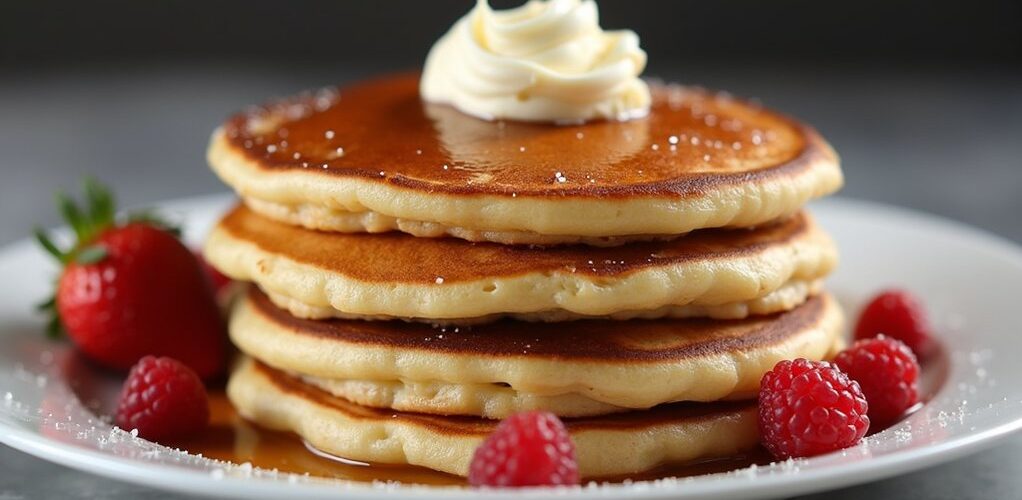
Traditional pancakes are high in carbohydrates, containing 30-40 grams per serving due to refined flour and sugary toppings. However, low-carb alternatives made with almond or coconut flour can reduce carb content to 3-6 grams per serving while maintaining a satisfying breakfast experience. These keto-friendly options incorporate protein-rich ingredients and natural sweeteners like monk fruit or stevia to create fluffy flapjacks suitable for various dietary needs. Understanding the right ingredient substitutions opens up a world of delicious possibilities.
Key Takeaways
- Traditional pancakes contain 30-40 grams of carbohydrates per serving, making them high in carbs and unsuitable for low-carb diets.
- Low-carb pancake alternatives using almond flour can reduce carb content to just 3-6 grams per serving.
- Keto-friendly pancakes made with almond or coconut flour provide similar texture while maintaining minimal carb counts.
- Sugar-free sweeteners like stevia and monk fruit can replace traditional sugars without adding carbohydrates to pancakes.
- Regular pancake toppings like maple syrup significantly increase carbs, but sugar-free alternatives keep pancakes low-carb friendly.
Traditional Pancake Carb Content Explained
When examining the carbohydrate content of traditional pancakes, it becomes essential to understand their composition and nutritional impact.
Traditional pancakes made with all-purpose flour typically contain between 30-40 grams of carbohydrates per serving, with approximately 20-25 grams of net carbs in a standard two-pancake portion.
The refined flour used in traditional pancakes contributes to a higher glycemic index, causing rapid blood sugar fluctuations compared to low-carb alternatives made with almond flour.
Additionally, the inclusion of added sugars, particularly in toppings and syrups, considerably increases the overall carbohydrate content.
For those seeking lower-carb options, alternative recipes utilizing ingredients like almond or coconut flour can reduce the carbohydrate content to just 3-6 grams per serving while maintaining the familiar pancake experience.
For keto-friendly recipes, consider using sweeteners like erythritol which have a minimal impact on blood sugar levels, unlike traditional sugars.
Understanding Low-Carb Pancake Alternatives
As health-conscious individuals seek alternatives to traditional wheat-based pancakes, the emergence of low-carb pancake options has revolutionized breakfast choices for those following ketogenic, paleo, or diabetic-friendly diets.
Modern low-carb pancakes utilize ingredients like almond flour and almond milk to create fluffy and delicious alternatives that contain only 2-7 net carbs per serving. These keto pancake recipes often incorporate protein-rich components while maintaining traditional taste profiles.
- Replace traditional flour with almond flour for a nutty, satisfying texture
- Add cream cheese to enhance moisture and protein content
- Sweeten naturally with monk fruit or stevia instead of sugar
- Top with sugar-free syrup to maintain low-carb goals
These innovative recipes highly recommend experimenting with various mix-ins while keeping carbohydrate content minimal, making this recipe adaptable for diverse dietary needs. Incorporating non-starchy vegetables into your breakfast routine can further enhance nutritional benefits while maintaining a low-carb profile.
Essential Ingredients for Keto-Friendly Flapjacks
Creating successful keto-friendly flapjacks requires careful selection of core ingredients, starting with almond or coconut flour as the primary base to maintain low carbohydrate content. Natural sweeteners like stevia or monk fruit provide essential flavor without compromising ketosis, while maintaining the traditional pancake taste profile. Binding agents such as room temperature eggs and cream cheese work together to create proper texture and structure, ensuring the flapjacks hold together while cooking and maintain their characteristic fluffiness with the help of baking powder. Using erythritol as a sweetener offers a zero-calorie option that is popular among keto bakers, further enhancing the flavor of your keto flapjacks without adding carbs.
Core Flours and Meals
The foundation of successful keto-friendly flapjacks lies in selecting the right low-carb flour alternatives.
When crafting these breakfast favorites, understanding the properties and carb content of different flours is essential for achieving ideal results while maintaining ketosis.
- Super-fine almond flour emerges as a primary choice, containing just 3 grams of net carbs per ounce and providing a lighter texture than standard almond meal.
- Coconut flour offers versatility with 6 grams of net carbs per ounce, requiring careful measurement due to its high absorbency.
- Lupin flour provides a protein-rich option with only 2 grams of net carbs per ounce.
- Flaxseed meal introduces beneficial omega-3 fatty acids while contributing minimal carbs at 0.5 grams per tablespoon, making it an excellent supplementary ingredient.
Natural Sweetener Options
Selecting the right natural sweeteners stands as an essential element in crafting delicious keto-friendly pancakes that maintain low carb counts. Several options exist for those following a keto pancake recipe, with monk fruit sweetener and allulose leading the way due to their minimal impact on blood sugar levels.
Stevia and erythritol have emerged as popular low-carb sweetener alternatives, offering sweetness without considerable carbohydrates. While Stevia derives its sweetness from plant leaves, erythritol provides a sugar-like taste with nearly zero calories.
Though coconut sugar presents a natural option, its higher carbohydrate content requires careful consideration in keto-friendly recipes. When incorporating these sweeteners, precise measurement becomes important, as their sweetness levels can vary greatly compared to traditional sugar, ensuring the perfect balance in the final product.
Binding Agents Matter
While traditional pancakes rely heavily on wheat flour for structure, keto-friendly flapjacks demand carefully selected binding agents to achieve the perfect consistency without excessive carbohydrates.
The right combination of ingredients guarantees proper moisture retention and fluffiness, creating a satisfying low carb alternative.
Key binding agents for keto pancakes include:
- Almond flour, providing essential protein and healthy fats for structure
- Cream cheese, contributing moisture and richness while maintaining low carb content
- Eggs, acting as a natural emulsifier and protein-rich binding agent
- Coconut flour, helping absorb excess moisture for ideal consistency
The addition of baking powder enhances the rise and texture, while ingredients like vanilla extract and sugar alternatives contribute flavor without compromising the carb count.
Making the Perfect Low-Carb Pancake Batter
Creating delicious low-carb pancakes begins with mastering the perfect batter composition, which relies heavily on almond flour as a foundation ingredient. The incorporation of room temperature eggs and a teaspoon of baking powder guarantees ideal fluffiness and rise in the final product. For keto-friendly pancakes, consider using coconut oil for cooking due to its low carb content and beneficial properties.
| Ingredient | Function | Impact |
|---|---|---|
| Almond Flour | Base | 2.3g net carbs per serving |
| Room Temp Eggs | Structure | Enhanced rise and fluffiness |
| Baking Powder | Leavening | Extra lift without carbs |
For best results, blend wet ingredients thoroughly before incorporating dry ingredients, creating a smooth batter that cooks evenly. Sweeteners like stevia or monk fruit can be added to enhance flavor without impacting blood sugar levels, making these pancakes both delicious and diet-friendly.
Best Flour Substitutes for Reduced-Carb Pancakes
The terrain of low-carb pancake making has expanded markedly with the introduction of various flour alternatives that maintain traditional texture while reducing carbohydrate content. Almond flour and coconut flour stand out as popular choices, offering versatility and nutritional benefits when used individually or combined to create the perfect pancake consistency. For those seeking additional options, flaxseed meal and lupin flour provide excellent alternatives with their high protein content and minimal net carbs, making them valuable additions to any low-carb baker's pantry. Nuts and seeds contribute healthy fats and plant-based proteins, which can also enhance the nutritional profile of reduced-carb pancakes.
Alternative Flours Compared
Modern health-conscious bakers have discovered several effective flour alternatives that dramatically reduce the carbohydrate content of traditional pancakes while maintaining their beloved texture and taste.
When comparing alternative flours, each option presents distinct advantages and characteristics for low-carb baking.
- Almond flour leads as a versatile substitute, containing just 6 grams of net carbs per quarter cup.
- Coconut flour offers even fewer carbs at 4 grams per 2 tablespoons, though requires additional liquid in recipes.
- Lupin flour provides the lowest carb content at 2 grams per 2 tablespoons, plus beneficial protein.
- Flaxseed meal contains minimal net carbs at 0.4 grams per tablespoon, while adding healthy omega-3s.
For ideal results, these alternative flours often work best when combined with proper binders like eggs to achieve traditional pancake consistency.
Nut-Based Flour Options
Among all low-carb flour alternatives, nut-based options stand out as particularly effective choices for pancake preparation. Almond flour leads the pack with only 2g of net carbs per quarter-cup serving, while coconut flour contains approximately 6g, making both excellent substitutes for traditional wheat flour in pancake recipes.
These nut-based flours not only reduce the overall carbohydrate content but also enhance the nutritional profile by adding healthy fat and protein to the pancakes.
When incorporating these alternatives into recipes, it's essential to follow proper ratios, typically using one part nut-based flour for every four parts of traditional flour. Coconut flour requires additional liquid due to its high absorbency, but both options create satisfying, low-carb pancakes that keep diners feeling fuller longer.
Grain-Free Baking Solutions
For individuals seeking grain-free alternatives in pancake preparation, several innovative flour substitutes have emerged as effective solutions for maintaining the beloved breakfast staple while reducing carbohydrate intake.
These low-carb options provide versatility for keto pancakes while delivering essential nutrients.
- Almond flour leads the grain-free baking movement with just 6g net carbs per quarter cup.
- Coconut flour offers superior absorption properties with 4g net carbs per tablespoon.
- Flaxseed meal delivers omega-3 benefits with only 1.5g net carbs per tablespoon.
- Lupin flour and sunflower seed flour provide nut-free alternatives, containing 5g and 4g net carbs per quarter cup respectively.
These alternatives enable creative experimentation in pancake recipes while maintaining texture and flavor profiles similar to traditional wheat-based versions.
Sweetener Options for Sugar-Free Pancakes
Several sugar-free sweetener options make it possible to enjoy delicious low-carb pancakes without compromising taste or dietary goals. For those following keto-friendly or low-carb diets, natural sweeteners like stevia, monk fruit sweetener, and erythritol provide excellent alternatives for creating sweet flavor in almond flour pancakes and sugar-free syrup. Many keto chocolate brands, such as Lily's Sweets, utilize these sweeteners to maintain low-carb content while offering a variety of flavors.
| Sweetener | Calories | Conversion Rate | Best Uses |
|---|---|---|---|
| Stevia | 0 | 1 tsp = 1 cup sugar | Pancake recipe base |
| Monk Fruit | 0 | 1 tsp = 1 cup sugar | Topping syrup |
| Erythritol | 0.24/g | 1:1 with sugar | Both base and topping |
| Stevia/Erythritol Blend | 0 | 1:1 with sugar | All-purpose use |
These natural sweeteners work particularly well in pancake recipes, offering flexibility in both the batter and toppings while maintaining blood sugar stability.
Top Low-Carb Pancake Toppings and Syrups
Low-carb pancake enthusiasts can enhance their breakfast experience with an array of toppings and syrups that maintain ketogenic or low-carb dietary requirements.
Following a low-carb diet doesn't mean sacrificing delicious pancake toppings – discover keto-friendly options that keep your morning favorites on track.
From creamy options to fruit-based alternatives, these toppings provide flavor while keeping net carbs minimal.
- Fresh berries like strawberries and blueberries offer natural sweetness with only 1-2g net carbs per serving.
- Sugar-free syrups made with erythritol or monk fruit contain 0-2g net carbs, compared to traditional syrup's 25g+.
- Whipped cream and cream cheese provide richness at just 0.5-2g net carbs per serving.
- Nut butters add healthy fats and protein while contributing only 3-4g net carbs per tablespoon.
For a convenient travel snack, consider pairing these toppings with portable options like hard-boiled eggs or cheese sticks to maintain dietary goals on-the-go.
These low-carb toppings transform basic almond flour pancakes into satisfying breakfast options without compromising dietary goals.
Storage and Reheating Tips for Keto Pancakes
While enjoying keto pancakes fresh off the griddle offers the best taste experience, proper storage and reheating methods can help maintain their quality for future meals.
When storing almond flour-based keto pancakes, place them in an airtight container in the refrigerator, where they'll stay fresh for up to a week.
For extended storage, freeze pancakes by arranging them on a baking sheet for an hour before transferring to a ziplock bag, extending their shelf life to several months.
To prevent moisture buildup during storage, make sure pancakes are completely cooled.
When reheating, microwave refrigerated pancakes for 30 seconds or warm them in a non-stick pan over medium-low heat.
For frozen pancakes, add a small pat of butter before reheating to maintain moisture and prevent drying.
Incorporating healthy fats and oils such as avocado oil or ghee can enhance flavor and texture when reheating your keto pancakes.
Frequently Asked Questions
Is a Flapjack Just a Pancake?
Traditional flapjacks differ from pancakes in ingredients, cooking methods, and origins. British flapjacks use oats and are baked into bars, while American variations often refer to pancakes, creating confusion about their distinction.
Are Pancakes Considered Carbs?
Traditional pancakes are primarily carbohydrates due to flour-based ingredients. While portion sizes affect carb counting, standard pancakes remain high-carb, though low-carb alternatives using alternative flours offer dietary-restricted individuals healthier options.
Are Pancake Keto?
Traditional pancakes aren't keto, but keto pancake recipes using almond flour, coconut flour options, and high protein ingredients create low carb alternatives. Sugar-free syrups and dietary fiber benefits make them suitable for ketogenic diets.
What Are Healthy Pancakes?
Healthy pancakes incorporate nutritious ingredients like protein-rich eggs, gluten alternatives, and fiber sources. They feature portion-controlled servings, beneficial cooking methods, and low-carb toppings while maximizing nutritional benefits through mindful meal prep.
Conclusion
Traditional pancakes may be high in carbohydrates, but health-conscious individuals can still enjoy this beloved breakfast staple through thoughtful ingredient substitutions. By choosing low-carb flours, sugar alternatives, and appropriate toppings, anyone following a ketogenic or reduced-carb diet can create delicious flapjacks that align with their nutritional goals. With proper preparation techniques and storage methods, these modified pancakes can become a satisfying part of a sustainable low-carb lifestyle.
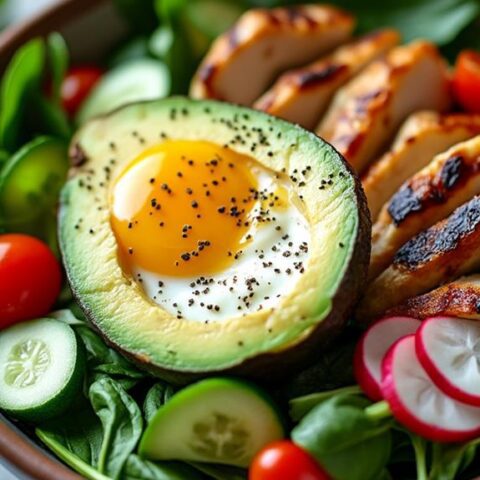

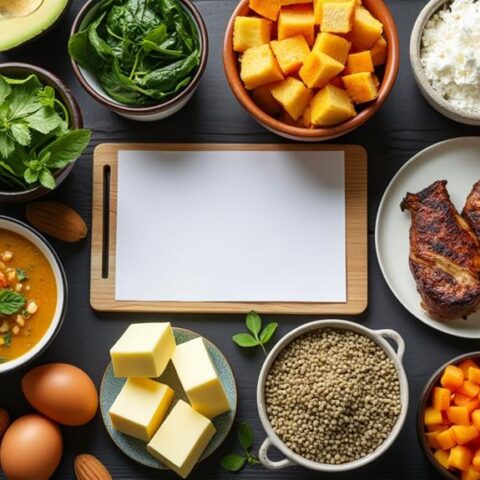
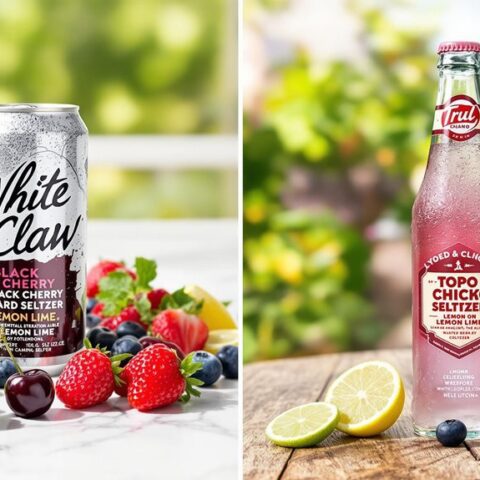
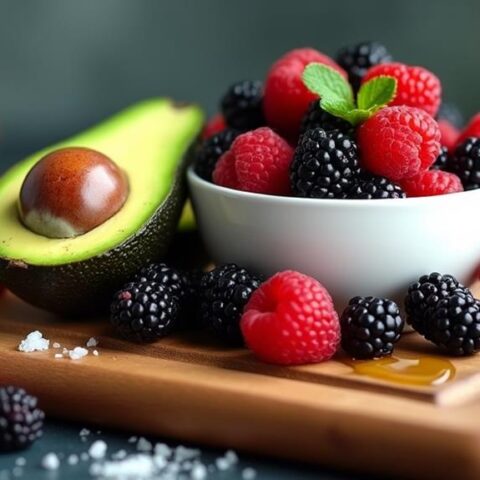




No Comments